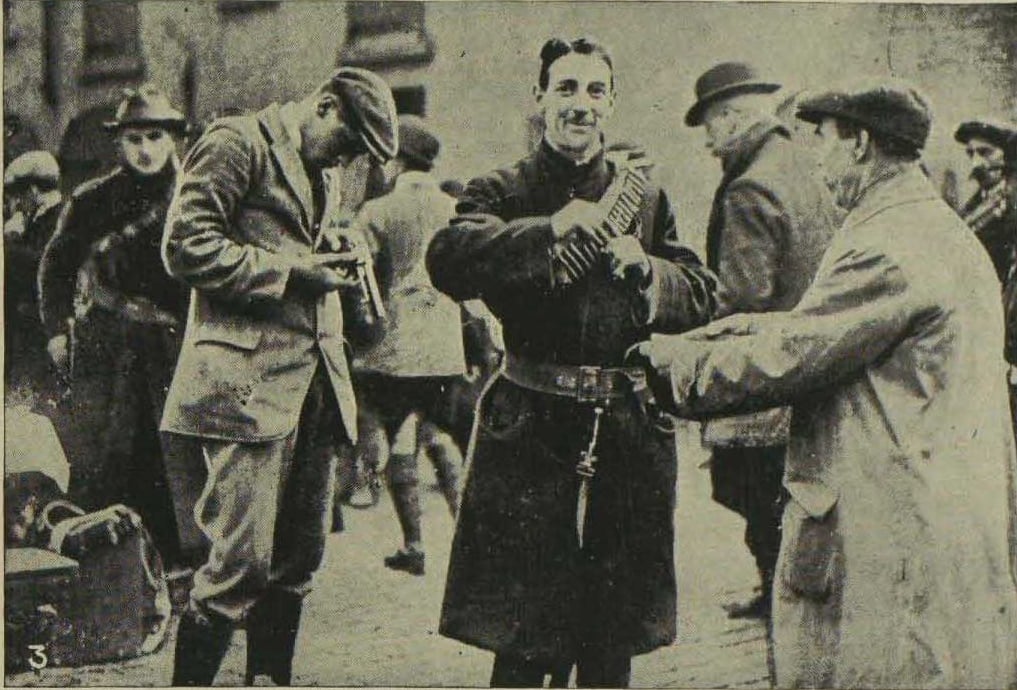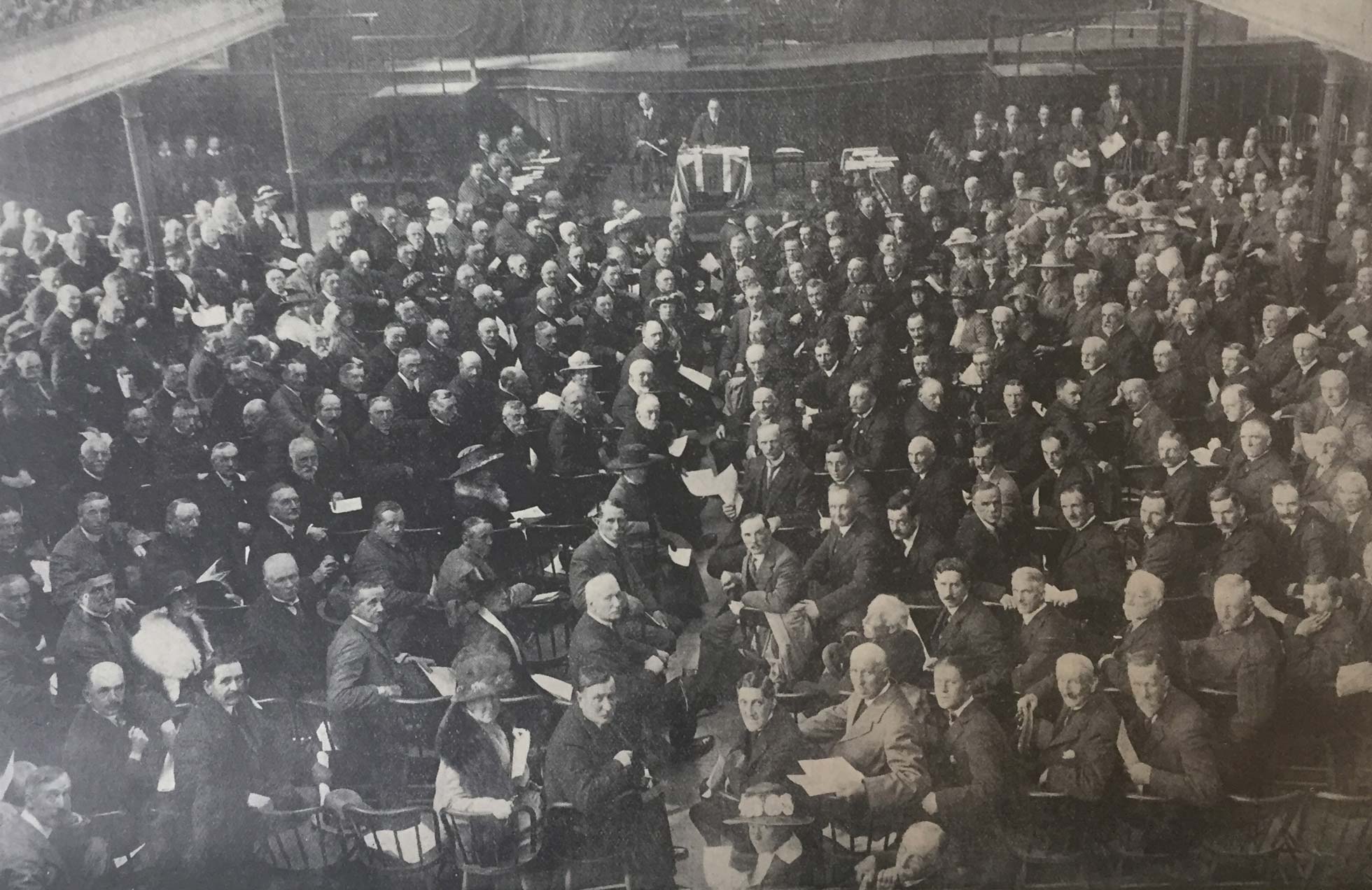Carson begins his Ulster ‘warpath’
Belfast, 3 September 1919 - The future of Ireland will come down to a straightforward choice between the Union as it exists at the present time or the policy of Sinn Féin. That was the message delivered by Sir Edward Carson in Belfast yesterday where he gave a number of speeches after his arrival into the city on board the Fleetwood steamer from London.
Mr Carson first delivered a speech to a gathering of the Ulster Unionist Council and later addressed a luncheon hosted by Lord Londonderry.
At both events, his message to his audience was the same – it was incumbent on Ulster unionists to get organised and to return to the same state of preparedness they were in before the outbreak of the war.

A group of Ulster Volunteers unloading and inspecting rifles and revolvers (Image: Illustrated London News, [London, England], 28 March 1914)
According to Mr Carson, the coalition government in London would not last much longer and then it will be a return to party politics.
When this happens, it will be necessary for unionists to be ready to make themselves heard.
‘Our minds, as I understand it, are unalterably made up. But we must take care that behind the unalterable opinion we have the means of letting it be known what our opinions are, and, above all, the forces behind that opinion which will make our opinion effective and prevail.’
Reviewing the trajectory of events in Ireland from the passage of the Home Rule Act, through the 1916 rebellion to the united catholic-nationalist opposition to conscription, Mr Carson said that all of these events had confirmed to him the propriety of the Ulster position on Home Rule.
Mr Carson emphasised the importance that he and the unionist community attached to the resolution of the Irish question, saying that their community, their businesses, their whole status had been held back owing to the uncertainty that surrounded their future.
When they should have been considering schemes of progress and development, unionists always said to themselves: ‘Well, if I do this, will Home Rule come, and when it comes, if it ever comes, what will be the effect upon my business and upon the extension and expansion of capital which I am now asked to make?’
The problem, he continued, was not with the desire for a solution but with the proposals for a settlement, which, he claimed, had failed because people did not take into account the real facts.
Recorded in 1963, Bulmer Hobson discusses the impact of Edward Carson and the Ulster Volunteers in changing the political climate in Ireland and in 'paralysing' the British government. (RTÉ Archives)
The Cork Examiner has described Mr Carson as being on a ‘warpath in Ulster’, his intention being to either provide the Prime Minister with an excuse to evade his duty in finding a solution to the Irish question ‘or else terrorising him and the coalition with threats and defiance’.
Ultimately, the future of Ireland will be determined by whatever policy path the British government chooses to pursue. While the government is pledged not to coerce Ulster, the Cork Examiner states, it can not continue to allow Mr Carson exercise a veto on Irish freedom. ‘If British statesmanship cannot find a way out, Mr George’s career as Prime Minister will be short-lived’, the paper has warned.
[Editor's note: This is an article from Century Ireland, a fortnightly online newspaper, written from the perspective of a journalist 100 years ago, based on news reports of the time.]





















